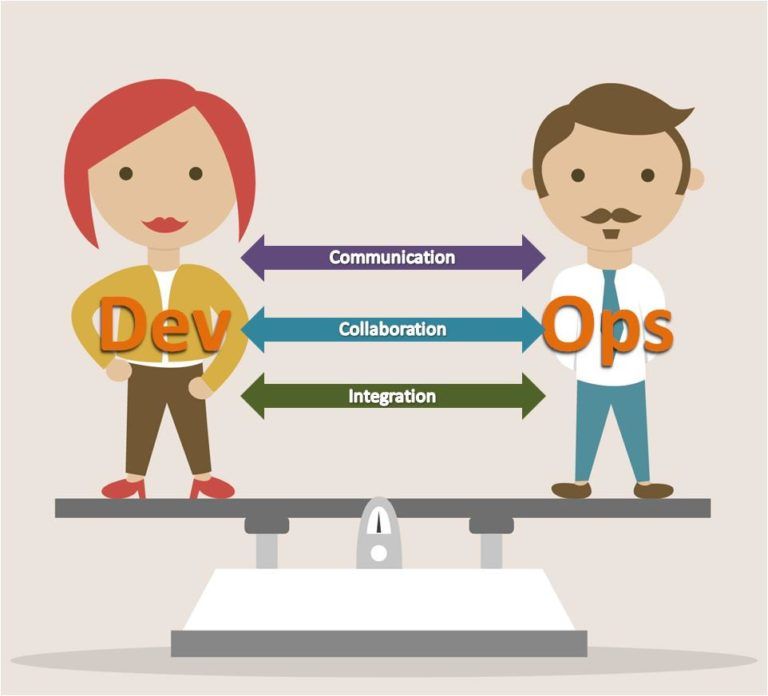· 4 min read · Plaintext Version
the role of communication in successful DevOps teams
Effective communication is a critical component of successful DevOps teams. DevOps is a culture and set of practices that aims to accelerate software development and delivery by breaking down silos...

Table of Contents
Key Takeaways
- Clear and open communication is vital for effective DevOps teams.
- Regular meetings with defined agendas help teams align and address issues early.
- Using common language and transparent messaging prevents misunderstandings.
- Feedback and open discussion foster continuous improvement.
- Automation supports DevOps, but direct human communication remains essential.
Effective communication is a critical component of successful DevOps teams. DevOps is a culture and set of practices that aims to accelerate software development and delivery by breaking down silos between development and operations teams. This requires a high level of collaboration and communication between team members, as well as the ability to quickly and effectively share information and ideas.
Effective communication is a critical component of successful DevOps teams. Whilst we think of DevOps is a culture and set of practices that aims to accelerate software development and delivery by breaking down silos between development and operations teams, in practice this requires a high level of collaboration and communication between team members, enabling confident and consistent communication as well as the ability to quickly and effectively share information and ideas.
Your teams should establish regular meetings, such as daily stand-ups or weekly sprint planning sessions. These meetings provide a forum for team members to share updates, discuss progress, and identify any roadblocks or issues that need to be addressed. It’s important to have a clear agenda and goals for these meetings, and to ensure that everyone has an opportunity to contribute.
But having the forum for communication is not enough on its own, we need the groundwork for good communication. It is essential to ensure that everyone is on the same page and that any issues or problems are identified and addressed quickly, requiring a high level of collaboration between the different roles in our cross-functional teams, who must work together to plan, design, build, test, and deploy the software.
We should always aim for our DevOps teams to have an agreed framework around the use of clear, concise, and consistent messaging. This includes using a common language and terminology, as well as clearly defining roles and responsibilities. This helps ensure that everyone is on the same page, and that there is no confusion or misunderstandings.
Communication should also be transparent across the entire organization, and not just restricted within the DevOps team. This means that stakeholders, management, and other teams should be kept informed about the progress, challenges and successes of the teams. This can be done through regular reports, status updates, or presentations. Clear communication can help build trust and buy-in from other teams, and ensure that everyone is aware of the benefits and goals of DevOps.
In addition, effective communication also requires the ability to listen and respond to feedback. Team members should be encouraged to share their thoughts and ideas, and everyone should be open to constructive criticism. This can help identify areas for continuous improvement and ensure that everyone is working towards a common goal.
Our teams will also rely heavily on automation and technology to streamline processes and reduce errors, and this too requires clear communication between teams and tools, as well as the ability to quickly and easily share information and data. Automated tooling such as Jenkins, Docker, Ansible, Kubernetes and Git will do the heavy lifting, but it is also important that the team has the right communication from the tooling to enable different teams to communicate and collaborate effectively, which all leads to a faster and smoother software development and delivery cycle.
With the increasing adoption of automation and technology, it may be important to ensure that team members are not relying too heavily on these tools and are not neglecting the human aspect of communication. I’ve seen too often the copy/pasted link being sent into a chat in response to a question, which leads to a Jenkins output or a build screen. We should encourage team members to communicate directly with each other, rather than relying on tools or scripts to do so.
Effective communication is a critical component of successful DevOps teams. It is important to establish regular meetings, use clear and consistent messaging, and encourage open and transparent communication across the entire organization. Team members should be encouraged to share their thoughts and ideas, and to respond to feedback, and tooling should be used to streamline communication and collaboration between teams. By focusing on communication, DevOps teams can work together more effectively to deliver software faster and more frequently, and improve overall performance and client satisfaction.



